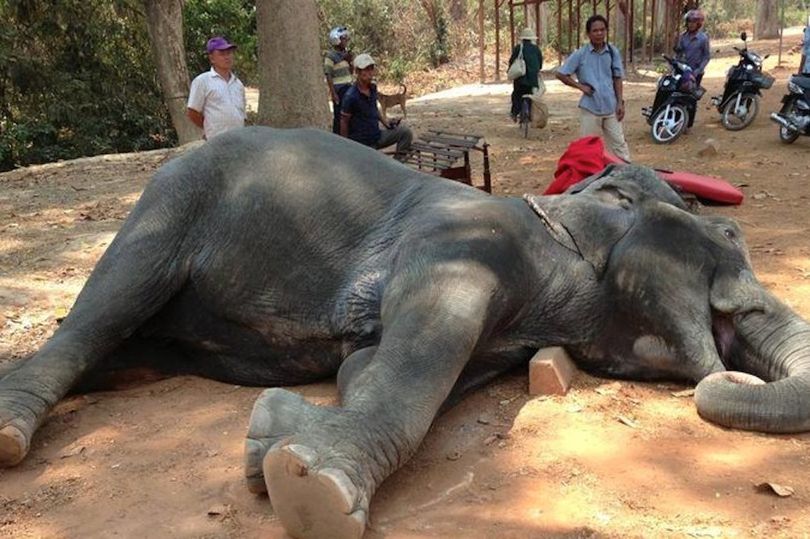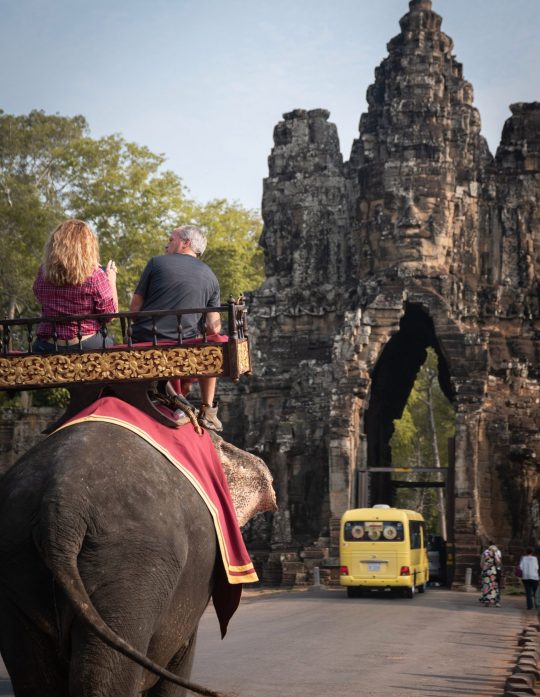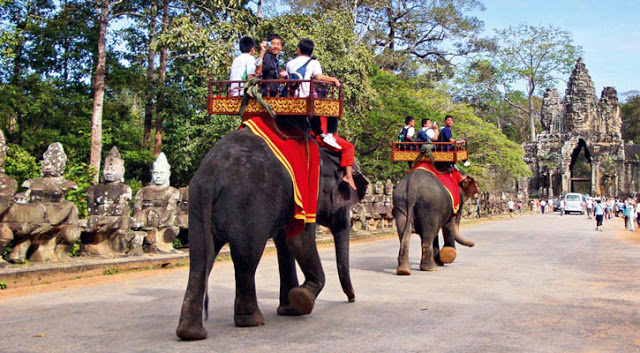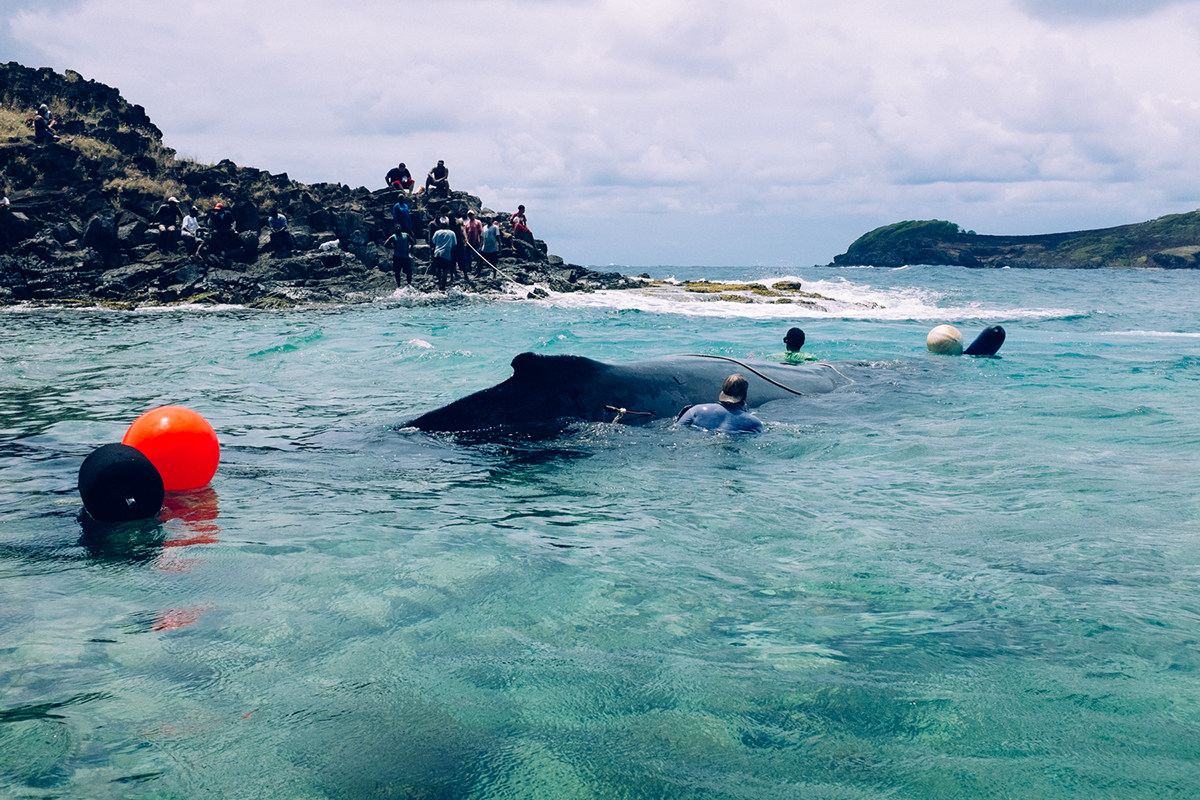
Cruel elephant rides at a famous temple in Cambodia are now coming to an end. The overworked group of 14 elephants will no longer be forced to work at Angkor Wat, where over 2.5 million international tourists visit each year.
They will be transferred to a conservation and breeding centre by early 2020, the The Angkor Elephant Group Committee confirmed.
In 2016, an elephant collapsed and died while ferrying two tourists to the monument, sparking international outrage at the practice.
Two years later, a petition to end elephant rides gained over 14,000 signatures in just 48 hours after another animal died from exhaustion.
Oan Kiry, director of the Angkor Elephant Group Committee, said: ‘In early 2020, our association plans to end the use of elephants to transport tourists.

‘They can still watch the elephants and take photos of them in our conservation and breeding centre. We want the elephants to live in as natural a manner as possible.’
Campaign group Moving Animals, who work to raise awareness of the cruelty behind elephant riding, have welcomed the move, calling it a ‘great relief’.
A spokesperson said: ‘The end of elephant rides at Angkor Wat is truly a watershed moment that shows the tide is turning against cruel wildlife tourism.
‘More and more tourists no longer want to pay to see animals in chains or captivity, and attractions where elephant riding continues, need to ban these rides if they are to stay in favour with tourists and animal lovers.’
Conservation
There are still believed to be around 70 domesticated elephants in Cambodia, while experts believe there are around 500 in the wild.
This includes around 110 living in the Keo Seima Wildlife Sanctuary and nearly 200 in the Cardamom Mountains.

The number of wild elephants in Cambodia and other countries in Southeast Asia has declined over the past due to illegal hunting, the destruction of habitats and conflict between the animals and people, studies suggest.
Ministry of Environment spokesman Neth Pheaktra said: ‘The government is working with relevant organisations to formulate strategies to protect and preserve elephants in Cambodia for future generations.
‘To effectively protect natural forest habitats of elephants, law enforcement needed to be strengthened to tackle illegal wildlife hunting and the use of snares.’
He added that awareness among local farmers in protected forests needs to be raised as often they use chemicals on crops or harm elephants when they intrude on their farmland.
Support Moving Animals in their work saving elephants
Metro UK
Subscribe for our newsletter
More news about elephants





